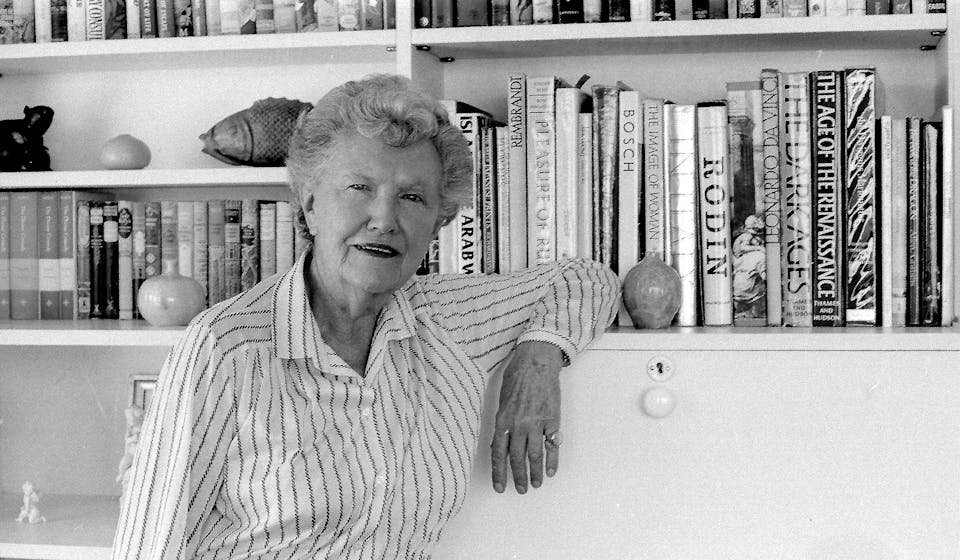Imprint
- Virago
- Virago
- Virago
Virago Modern Classics, Fiction, Modern & contemporary fiction (post c 1945)
'Renault's masterpiece. One of the greatest historical novels ever written' SARAH WATERS
In the second novel of her stunning trilogy, Mary Renault vividly imagines the life of Alexander the Great, the charismatic leader whose drive and ambition created a legend.
The Persian Boy traces the last years of Alexander's life through the eyes of his lover, Bagoas. Abducted and gelded as a boy, Bagoas is sold as a courtesan to King Darius of Persia, but finds freedom with Alexander the Great after the Macedon army conquers his homeland. Their relationship sustains Alexander as he weathers assassination plots, the demands of two foreign wives, a sometimes mutinous army, and his own ferocious temper. After Alexander's mysterious death, we are left wondering if this Persian boy understood the great warrior and his ambitions better than anyone.
'Mary Renault is a shining light to both historical novelists and their readers. She does not pretend the past is like the present, or that the people of ancient Greece were just like us. She shows us their strangeness; discerning, sure-footed, challenging our values, piquing our curiosity, she leads us through an alien landscape that moves and delights us' Hilary Mantel
'The Alexander Trilogy stands as one of the most important works of fiction in the 20th century . . . it represents the pinnacle of [Renault's] career . . . Renault's skill is in immersing us in their world, drawing us into its strangeness, its violence and beauty. It's a literary conjuring trick like all historical fiction - it can only ever be an approximation of the truth. But in Renault's hands, the trick is so convincing and passionately conjured. Nowhere is this more evident than in The Persian Boy . . . Bagoas is a brilliant narrator. Rendered unreliable by his passion, he is always believeable and sympathetic . . . His Persian background allows him to see the king and his Macedonians through the questioning eyes of an alien' - Antonia Senior, The Times
Praise for The Persian Boy: A Novel of Alexander the Great: A Virago Modern Classic
-
Mary Renault is a shining light to both historical novelists and their readers. She does not pretend the past is like the present, or that the people of ancient Greece were just like us. She shows us their strangeness; discerning, sure-footed, challenging our values, piquing our curiosity, she leads us through an alien landscape that moves and delights us.
-
The Alexandriad is one of the twentieth century's most unexpectedly original works of art
-
Renault's masterpiece. One of the greatest historical novels ever written - Sarah Waters
-
The Alexander Trilogy stands as one of the most important works of fiction in the 20th century . . . it represents the pinnacle of [Renault's] career . . . Renault's skill is in immersing us in their world, drawing us into its strangeness, its violence and beauty. It's a literary conjuring trick like all historical fiction - it can only ever be an approximation of the truth. But in Renault's hands, the trick is so convincing and passionately conjured. Nowhere is this more evident than in The Persian Boy . . . Bagoas is a brilliant narrator. Rendered unreliable by his passion, he is always believeable and sympathetic . . . His Persian background allows him to see the king and his Macedonians through the questioning eyes of an alien' - The Times

Mary Renault
Mary Renault (1905-1983) was born in London and educated at St Hughs, Oxford. She trained as a nurse at Oxford's Radcliffe Infirmary, where she met her lifelong partner, Julie Mullard. Her first novel, Purposes of Love, was published in 1937. In 1948, after North Face won a MGM prize worth $150,000, she and Mullard emigrated to South Africa. There, Renault was able to write forthrightly about homosexual relationships for the first time - in her masterpiece, The Charioteer (1953), and then in her first historical novel, The Last of the Wine (1956). Renault's vivid novels set in the ancient world brought her worldwide fame. In 2010 Fire From Heaven was shortlisted for the Lost Booker of 1970.
































.png?auto=compress&w=150&h=60&fit=crop&fm=jpg)
.png?auto=compress&w=150&h=60&fit=crop&fm=jpg)



